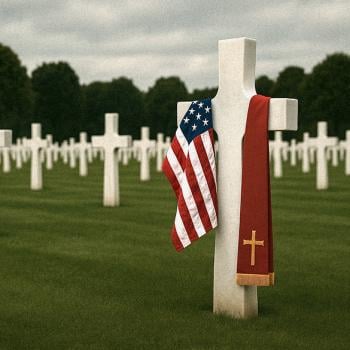What does this say to heads of denominations?
We need to readopt the language of apostolic leadership, then define it in ways that are authentic to our conviction that democracy and equality are basic human rights. This language of apostolic leadership has been seized upon by theologically conservative and authoritarian definitions. We need to go back to the Apostle Paul, who talked about the limitations of his own leadership and that God was making him a leader, and had a real humility about him.
There are ways to have the apostolic function of leadership, a missionary function, without being authoritarians. If you think about when John Wesley set aside overseers for the United States around the time of the American Revolution -- he broke with the Anglican Church structure, and it was over apostolicity. There was a mission need that could not be met unless there were leaders designated for that. So he broke with apostolic succession in order to be apostolic. For Protestants, our definition of apostolicity should come from faithfulness to being missionaries, to being boundary crossers and those who seek to witness to the gospel in new situations.
What sparks your interest in mission trends?
My first interest was in the relationship between American politics, worldviews, and people in other parts of the world. That's one of the sets of questions that drew me into being a historian of Christianity. Then within that I was, as a Christian, engaged in the relationship between faith and action. Through that I found myself drawn to missions as a place in which people did amazing things against their own best interests, often because of their faith. They were cultural boundary crossers. They were the living bridges between one culture and another. The combination of those intellectual questions with my own Christian faith and wanting to study what was of the deepest importance to what it means to be a Christian led me into the study of missions.
Is there a contemporary Christian story that you come back to again and again?
There are so many great Christians around the world who have done amazing things. You know the movie Chariots of Fire. It's about Eric Liddell. He goes back to China as a missionary from Scotland. He then stays there even though the Japanese take over the area. He spends years in a prison camp serving the prisoners, and he was so important to the Chinese that recently Chinese Christians erected a monument to him, because he died in a Japanese prison camp.
Now, when we study mission history, at what point do we study it? Do we study the colonial history of 1920? Do we stop at 1943, when Eric Liddell is in the prison, or do we judge him from how Chinese people see him today, as a great hero who loved them? That's the paradox of mission history. It's so human, and we don't know what God is going to do in the future with a flawed story of human weakness. Sometimes things come out of it that we simply cannot predict, and who is to say what the ultimate meaning is?
This article was previously published at Faith and Leadership, a publication of Leadership Education at Duke Divinity School, and is reprinted with permission.




